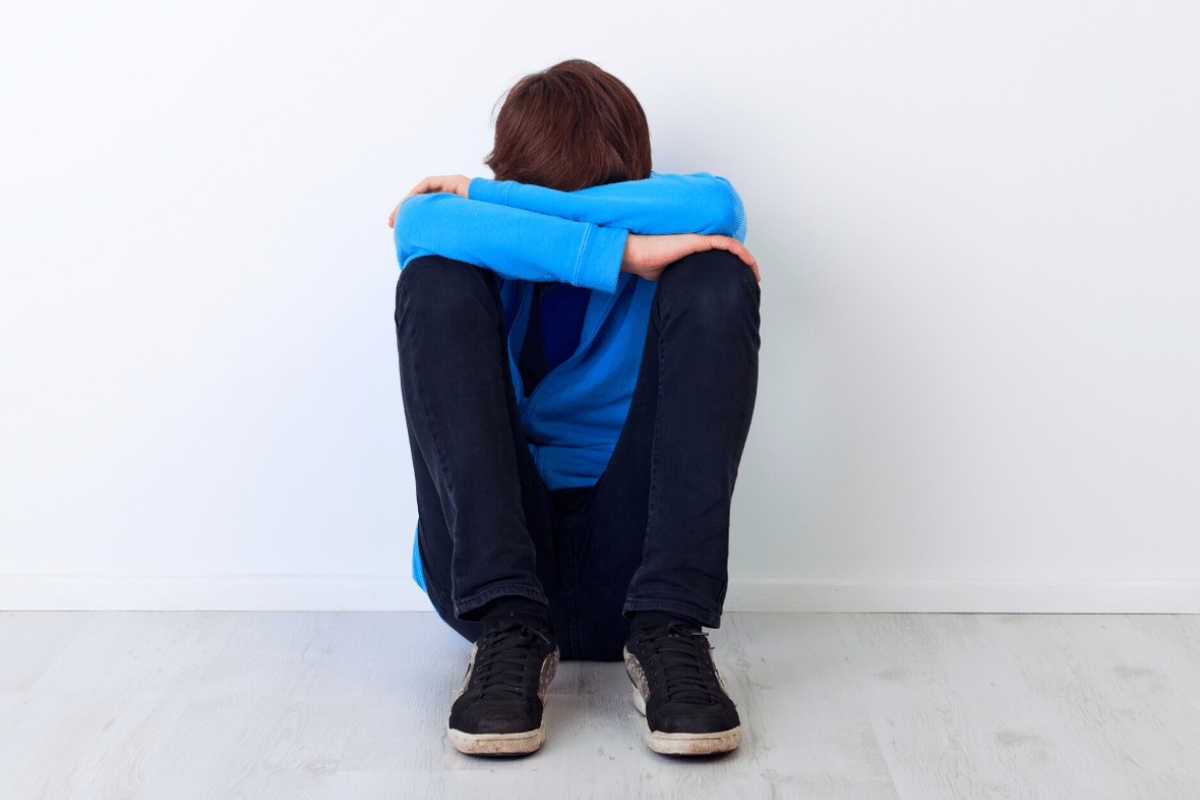
Does my teen have depression?
Most teens will have times where they feel low, unmotivated, troubled or directionless. It can be worrisome when they are sleeping in till midday, lose motivation for study or exercise, and are withdrawn from family relationships.
These symptoms do not always point to a depressive disorder, especially if temporary, but some positive interventions can prevent them from spiralling out of control.
Is it just moodiness or a Depressive Disorder?
There are many factors that contribute to our mood and feelings on any given day. Teenagers are growing at a rapid rate, both physically and emotionally. Their brain is developing and changing, requiring a lot of energy and rest. Their social relationships are becoming much more important to them, and they are increasingly independent in their decisions and thinking. The progression through puberty brings a new awareness of their own sexuality, and they are intensely working out their identity and self-image.
During this season, mood can be affected by many different factors. Most teens face new types of stress that they have not faced before, causing them to feel anxious and out of control. Many will experience conflict and confusion in some of their important relationships. Other factors in mood can be linked to screen time, diet, sleep and exercise. Many of these are external contributors and can be manually adjusted with some deliberate choices and changes.
However, there are some adolescents who experience longer lasting moods of heaviness and low feelings that may come with darker thoughts that spiral into dangerous territory. These are not just mood swings, but concerning patterns that disrupt normal daily activities, create withdrawal from relationships, and impact school performance. In such cases, medical intervention can be a life saver, both emotionally and literally. Don’t wait too long to seek help when signs are there.
Signs of depression
According to the DSM-IV, some of the signs and symptoms of clinical depression in adolescents may include:
- Long-term feelings of sadness, emptiness or hopelessness
- Angry outbursts, irritability or frustration, even over small matters
- Loss of interest or pleasure in most or all normal activities, that they would usually enjoy
- Sleep disturbances, including insomnia or sleeping too much
- Tiredness and lack of energy, so even small tasks take extra effort
- Reduced appetite and weight loss or increased cravings for food and weight gain
- Anxiety, agitation or restlessness
- Slowed thinking, speaking or body movements
- Feelings of worthlessness or guilt, fixating on past failures or self-blame
- Trouble thinking, concentrating, making decisions and remembering things
- Frequent or recurrent thoughts of death, suicidal thoughts, suicide attempts
- Unexplained physical problems, such as back pain or headaches
All adolescents will display some of these symptoms at various times. But when numerous symptoms last more than two weeks, are noticeable on a daily basis, and are interrupting regular day-to-day activity, then it may be time to seek help.
I was withdrawn and angry, and didn’t even know why. I had some trouble with girls at school but I could normally handle that. This time, I kinda spiralled out of control. I lost my motivation and couldn’t care what happened to me or others. I even had thoughts of suicide. I started on some anti-depressant medication and after a few weeks, it really started to work. It was like a blanket lifting off me. My trouble didn’t go away, but I wasn’t going to those really dark places and I had a bit more hope. I actually wish I had gotten help sooner.
Who should we seek help from?
Your GP is usually the best person to speak with first. General Practitioners (your local Doctor) in Australia are able to talk with you about suitable medication that can have a marked affect within a relatively short period. Not only that, but the GP can prescribe a government funded mental health plan that enables you to access a Medicare rebate for sessions you attend with a registered Psychologist. It may also be worth asking your school counsellor or even friends to advise a therapist who is skilled in working with teens. It can be difficult to find a professional who is both educated AND relatable to a younger client.
THE “GET HELP IMMEDIATELY” CHECKLIST:
- They talk about death, suicide, self harm: If they are talking about it, then act. If they are not talking about it but showing it, ask gently. Ask their friends. If they are using phrases like, “No one will miss me” and “You’d be better off”, do not treat it lightly. Every teen needs to know that they do not have to live with deep, dark feelings, and that help is possible.
- Constant withdrawal from multiple relationships: A little bit of withdrawal and a push toward independence is normal for teens. But if the withdrawal is constant and across multiple relationships, then it may show that there is a deeper problem.
- A drop in motivation: For some teens, they suddenly lose their motivation to try. This can be significant for the outcome of their High School education and is best to be addressed sooner than later.
- A state of helplessness
THE “WATCH AND ACT” CHECKLIST:
- A drop in grades: This can be for a number of reasons, but a drop in grades should be something to take notice of. If combined with other depressive indicators, it might show a deeper problem.
- Higher risk-taking with a detachment from consequence: Often seen in teenage boys, risk-taking behaviour is not a strong indicator of a depressive disorder, but if it in paired with statements of helplessness, withdrawal or mood swings, then it’s worth watching and asking more.
- Giving away valued possessions: Again, linked with helplessness and a drop in motivation or desire, then this can be a practical sign that there’s more going on below the surface.
THE “WHAT WE SHOULDN’T DO” LIST:
- Telling them that their feelings are wrong: It can be tempting to say, “What have you got to be depressed about?” or “Why are you so down?” or “You haven’t been through hard things… you should have grown up in my house!” These statements never make a teen come to their senses and suddenly realise that they should be happy. Simply put, we don’t know all the ins and outs of what they are going through, what personality they have been equipped with, and how different things feel to different people. Shutting down the feeling or telling them to feel differently comes across as a criticism and that generally makes things worse.
- Dismissing: It’s dangerous to ignore or dismiss the signs. At the softer end, a teen may live for months and years with a heaviness that is preventable, and this will usually have a deep affect on relationships and education. On the serious end of the scale, reports show that only 30% of those who attempt suicide tell someone beforehand. Signs are important.
- Name calling, put downs, labels: This should be obvious, but even adults can say things out of turn because we’re struggling to cope with stress and the unpredictable emotions of others. But calling someone a Debbie-Downer, or telling them to go cry about it, or any number of put downs will just pour fuel on the fire and should avoided at all costs.
Practical interventions for depression
Whether they are simply down and lethargic, or in a mental health crisis, there are many things you can do to help counter those feelings of depression.
- Invite vulnerable conversations – A conversation might start with a simple, “How are you feeling?” Or “I’ve noticed you are not your usual self. Want to talk about it?” Even sharing some of your own challenges may create a safe space for a teen to share theirs. But it’s important that they feel safe, that there will not be any judgement or critique.
- Ensure teens are getting adequate sleep – Sleep is a huge factor in adolescents developing an healthy brain. Research shows that teens need 8-10 hours per night, but very few are getting this. Ensuring teens are getting adequate sleep requires some intentionality and boundary setting, particularly if they are in a pattern of staying up late or taking screen devices to bed.
- Encourage physical exercise – Exercise has proven affects on depression and will benefit even the deepest of clinical depression. Unfortunately, many of us, including the teenagers we care for, wait until the desire for exercise comes along before we move a muscle – and they are left waiting and waiting. Creating an exercise routine, joining a sporting team or creating a new family rhythm may just be the thing that turns it all around.
- Monitor screen time – There is a growing group of professionals who believe that screen time is having a huge psychological affect on the human brain and mood. Some teens are on phones and devices for hours at a time, causing them to remain in a sedentary state for a long time, often in a dark environment, without fresh air and exercise. Many are on devices late into the night impacting the length and quality of sleep. Limiting screen time – as difficult as that can be – may be a significant step in improving a teenagers mood.
- Consider the context – A therapist may be the best person to help make sense of life events and circumstances that are causing pain and sorrow. It may be the loss of a loved one, conflict in relationships, the sense of rejection or not having a place of belonging, unmet expectations or simply the challenges of school. Facing challenges is part of life, and teenagers are learning how to bounce back from difficulties and grow resilience. These challenges may cause temporary sadness and sorrow, but they present opportunities for growth.
Have you experienced or know someone who has suffered depression? We’d love to hear of your experience if it might help others.


